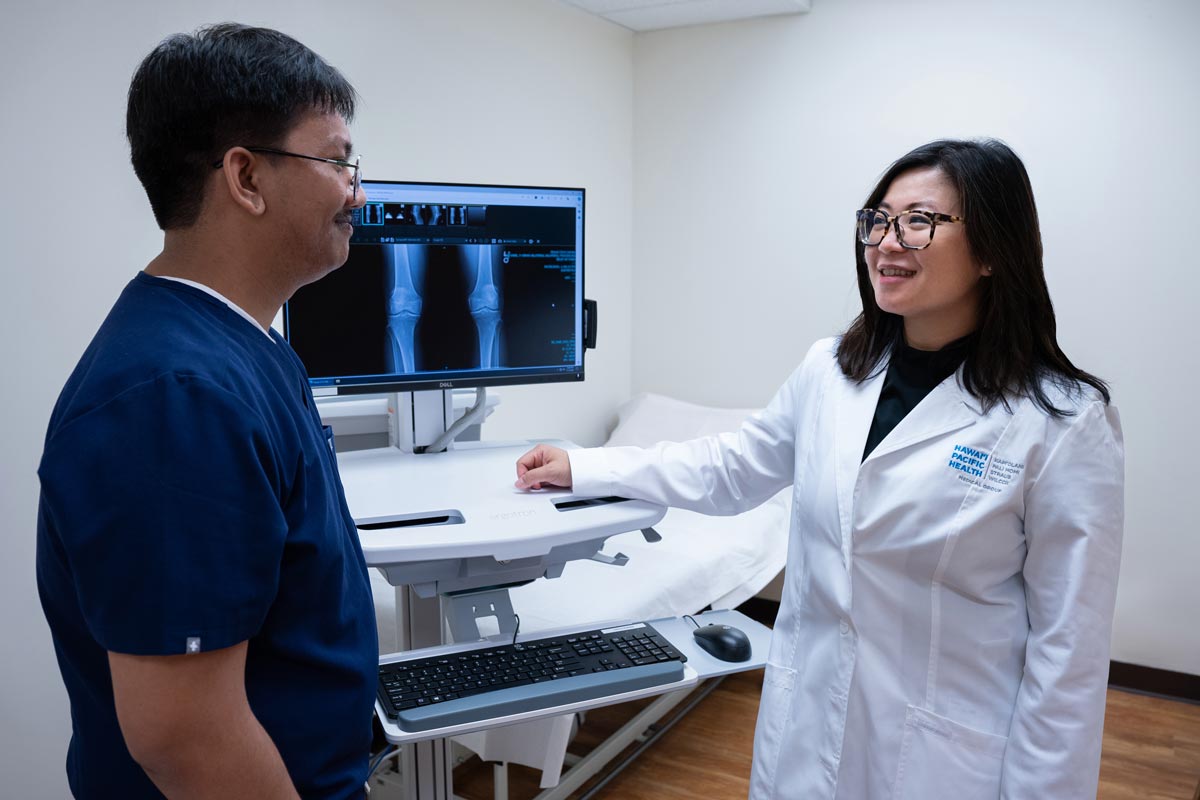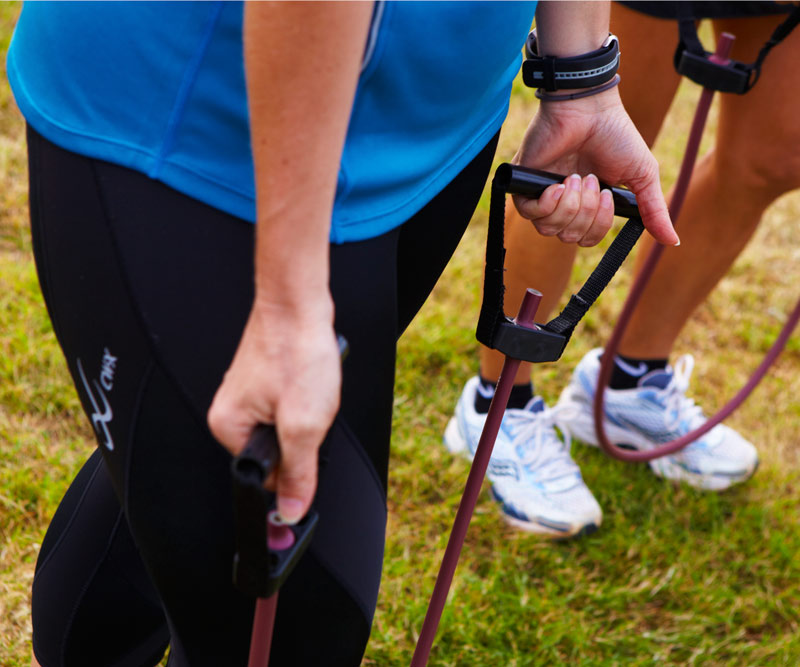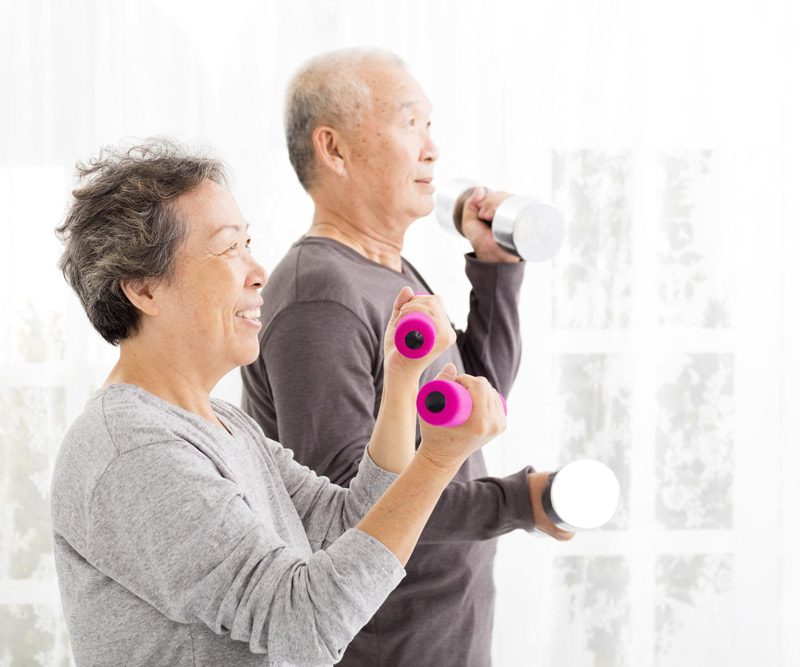
Talking About Arthritis Types, Treatments & Prevention
As a rheumatologist at Straub Benioff Medical Center, Dr. Devy Setyono's focus is on inflammation in bones, joints, muscles and internal organs. She treats a wide spectrum of conditions – everything from fibromyalgia to gout.
"Diseases in rheumatology tend to be complex, so you need to have a solid foundation in internal medicine across subspecialities," she says. "My new patient visits typically start with a patient stating, 'You’re the fourth or fifth doctor I’ve seen.'
"You have to acquire a thorough understanding of the patient's history by asking questions and listening to their experience," she continues. "While rheumatology is a rapidly evolving field, it takes an old-school clinician, who spends time with the patient, to be a good, well-rounded rheumatologist."
Setyono has a medical degree from Guangxi Medical University in China, completed an internal medicine residency through Drexel University College of Medicine in Pennsylvania and underwent a fellowship in rheumatology at Wake Forest University School of Medicine in North Carolina. But she says honesty, communication and trust are just as important as her medical credentials when it comes to treating her patients.
"Being able to give a patient an answer and give them hope is my most rewarding experience," she says. "The trust my patients put in me is what keeps me going as a physician. I hope they can see I'm truly invested in their health."
One of the most common rheumatic conditions she treats is arthritis.
What are common types of arthritis?
Osteoarthritis is the most common form of nonautoimmune arthritis worldwide. It affects the hands, knees, hips and spine. Over time, the protective cartilage breaks down, which leads to joint pain that can, at times, be debilitating.
Rheumatoid arthritis is a long-term disorder where the immune system attacks the joint linings, causing inflammation, pain and joint destruction. Affected joints may have prolonged stiffness in the morning. It can also cause inflammation in the eyes, lungs and circulatory system.
Psoriatic arthritis is an autoinflammatory disorder that affects the skin and joints where the tendon attaches to the bone, as well as the Achilles tendon and spine. It can be associated with cutaneous psoriasis, an autoimmune skin disorder that creates red patches with silvery scale-like rashes. It may also cause inflammation of the eyes.
Ankylosing spondylitis primarily affects the spine. It can lead to irreversible fusion of the spine, often called "bamboo spine." It can result in a hunched posture.
Fibromyalgia is not a type of arthritis, but rheumatologists often encounter and diagnosis it while ruling out arthritis. Dysfunctional pain receptors result in widespread intermittent or persistent pain that can lead to sleep disorders, fatigue and mood disorders. It is best managed by a team of specialists.
What treatments are available?
Nonautoimmune arthritis such as osteoarthritis can be improved with physical therapy, weight loss, muscle strengthening, hot and cold therapy, nonsteroidal anti-inflammatory drugs or acetaminophen, when appropriate. Severe osteoarthritis may warrant a consultation with an orthopedic specialist for joint replacement.
Rheumatoid arthritis, psoriatic arthritis and ankylosing spondylitis are typically treated with disease-modifying anti-rheumatic drugs and biological therapies.
What is a common form of arthritis in Hawaii?
Gouty arthropathy is one of the most common forms of inflammatory arthritis here due to diets that are rich in purine (a chemical compound found in foods, including red meat, pork, beef and shellfish).
Avoiding alcohol and purine-rich foods and staying hydrated can help mitigate gout.
What other health issues are linked to arthritis?
Significant arthritis limits a person's ability to manage other conditions, such as diabetes and hypertension. Reduced physical activity, comorbid conditions and adverse reactions to medications lead to a 55% increase in mortality.
How can people prevent arthritis?
Regular physical activity, muscle-strengthening exercises, avoiding excess body weight, implementing a healthy diet and managing stress help slow down arthritis.
Find the physical activity that you enjoy – such as cycling, in my case – and make it a part of your lifestyle.
This article was first featured in the July 24, 2024, issue of MidWeek as a part of the "Dr. in the House" series. See the full publication here.
Published on: July 30, 2024




